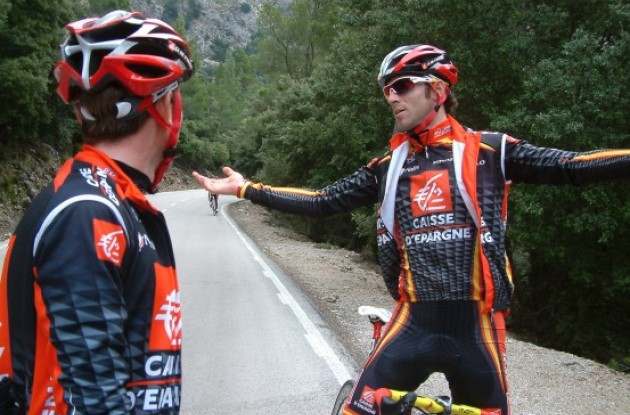Spain passes anti-doping law not making doping a crime for cyclists
The new law approved by parliament includes the expansion of doping tests for athletes to night hours (11 p.m. to 6 a.m.) and costly fines for those who deal in doping substances. It also creates a new national anti-doping agency with greater autonomy and an additional focus on the health of athletes.
Dealing in banned substances in Spain will lead to fines of up to US$530,000. Notably, however, the law does not make doping a crime for athletes, just a sports violation subject to bans from competition.
Despite the new law failing to make doping a crime for athletes, the president of the Spanish Olympic Committee, Alejandro Blanco, claimed the law would help Spain increase its "credibility" in the effort against banned performance-enhancing substances and practices.
Madrid is competing with Istanbul and Tokyo for the 2020 Olympic Games. The IOC will select the host city on September 7 in Buenos Aires, Argentina. The new law was passed two days before the bid cities make presentations to national Olympic committees in Lausanne, Switzerland.
"We said that we would have a new anti-doping law before defending the candidacy before the members of the IOC in July and that's what has happened," said Blanco, who leads the Madrid bid. "It's a law that meets all the requirements of the World Anti-Doping Agency," he claimed.
Spain's first anti-doping law was passed in 2006. The previous lack of doping legislation harmed Spain's image on doping and hampered police investigations like Operation Puerto. As the new law does not make doping a crime for athletes, police investigations will continue to be hampered. The Operation Puerto case ended with the doctor at the center of the blood-doping ring, Eufemiano Fuentes, declared guilty and given a one-year suspended sentence for endangering the health of cyclists.
The judge's decision to destroy blood bag evidence that it is said would have implicated Spanish top athletes from other sports such as tennis, soccer and athletics has been heavily criticized by media and by anti-doping authorities, who have appealed the ruling.
"This is the end of an opening phase and an indispensable step to bring us in line with other countries," said Ana Munoz, who thereby indicated further measures are needed. Munoz will stay on as the director of the newly named Sports Health Protection Agency. The name implies its primary focus on health rather than doping. "It's news that will strengthen the Madrid 2020 candidacy and guarantee that all clean athletes can compete under equal conditions," she claimed.
Among measures on health, the new law requires sports facilities be equipped to handle emergencies related to heart and breathing problems.
Follow Roadcycling.com on Twitter, Facebook and Google+ and help us spread the word about RoadCycling.com by linking to us from your Web site or blog.








